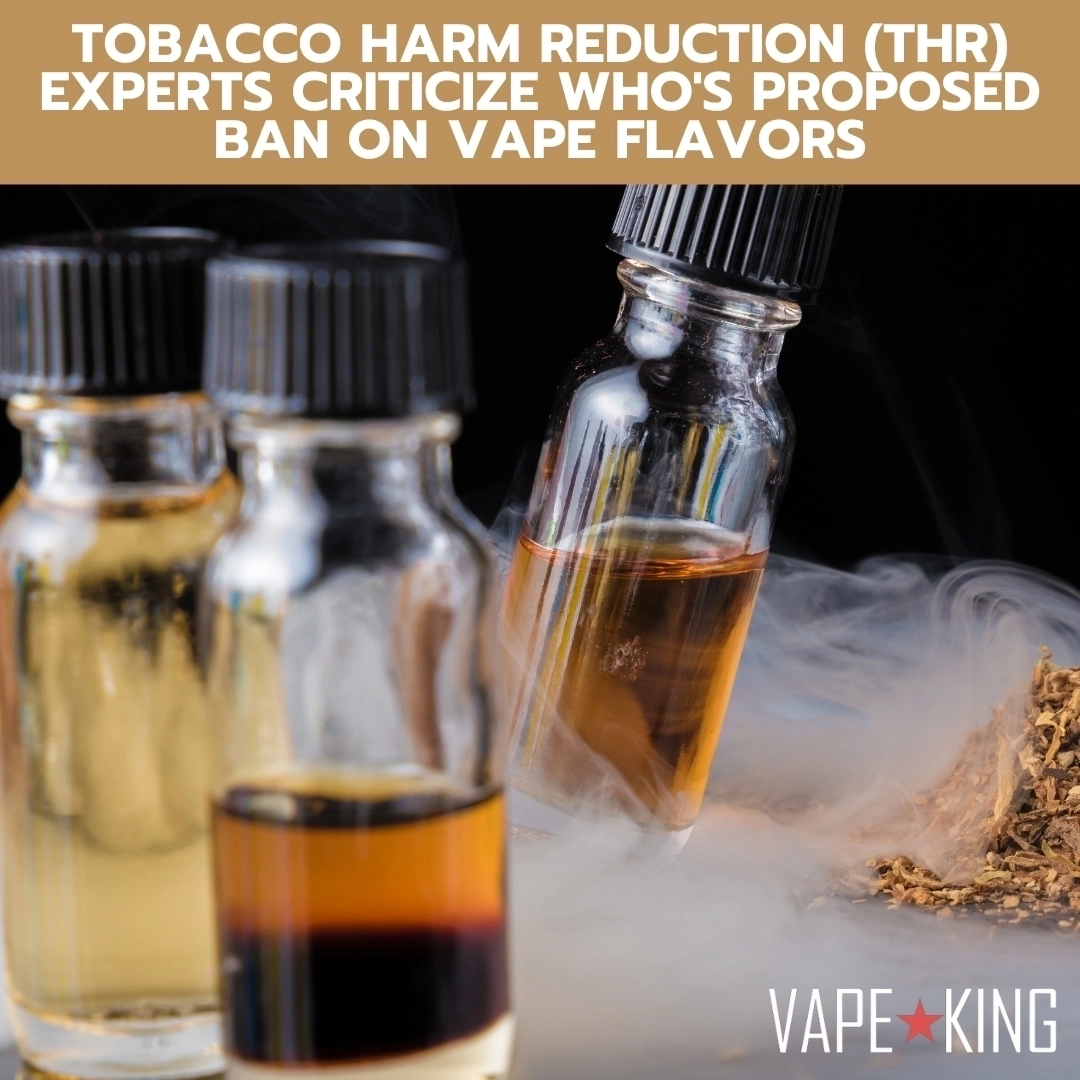Tobacco Harm Reduction (THR) Experts Criticize WHO's Proposed Ban on Vape Flavors

The recent statement from the World Health Organization (WHO) urging a global ban on vaping products and flavors has sparked strong opposition from the World Vapers Alliance (WVA). In alignment with global tobacco harm reduction experts, the WVA contends that the WHO's position is not only misguided but also scientifically disconnected.
Michael Landl, the director of WVA, emphasized that research indicates flavored vapes enhance smoking cessation success by 230% compared to their non-flavored counterparts. Additionally, the WVA pointed to studies affirming that vaping is 95% less harmful than smoking and more effective for smokers attempting to quit than traditional methods like gum and patches. The THR experts argue that restricting or banning access to vape flavors would hinder public health efforts and result in avoidable loss of lives.
Landl criticized the WHO's proposal as a blatant neglect of its duty to safeguard public health, deeming it a regressive move likely to push people back to smoking. The WVA urges global health policymakers to reject the WHO's recommendation and adopt an evidence-based, balanced approach to regulating vapes.
The alliance advocates for policies that respect the rights and choices of adult smokers while effectively addressing youth vaping issues without resorting to measures that could reverse progress in smoking cessation. They call for decisions based on science and real-world evidence rather than unfounded fears and moral panic.
A Proven Strategy: UK's Success
Contrary to the WHO's approach, the UK has implemented a science-based strategy that has yielded remarkably positive results. In 2021, the Medicines and Healthcare products Regulatory Agency announced the availability of prescribed vaping products, with no flavor restrictions, through the National Health Service (NHS). Health Secretary Sajid Javid noted the potential of licensed e-cigarettes prescribed on the NHS to address smoking rate disparities across the country.
A 2022 study from the University of East Anglia (UEA) suggested that distributing vape starter kit vouchers through the NHS could aid even long-term smokers in quitting. In a pilot scheme involving 668 participants, 42% of smokers who redeemed a vape kit voucher successfully quit smoking within a month. The success prompted the national rollout of the scheme, achieving unprecedented smoking cessation rates.
Flavor Bans Ineffective: Real-world Data
Recent data from California, where a flavor ban was implemented in 2020, confirm its ineffectiveness. A study published on November 7th in the journal Tobacco Control revealed that consumers in California are increasingly purchasing flavored cigarettes and vapes online. Shopping queries for cigarettes and vaping products were 194% and 162% higher than estimated, respectively, after the ban took effect. The ban has inadvertently boosted the local black market for flavored products, presenting challenges to regulating the influx of unauthorized flavored vapes in the $7 billion U.S. ( approximately R105.2 billion) vape market.
No posts found
Write a review


